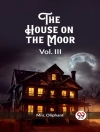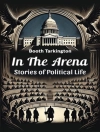In ‘The Secret Room Murders’ by Charles Wadsworth Camp, readers are taken on a thrilling journey through a series of mysterious murders in a small town. The book is crafted in a classic murder mystery style, reminiscent of Agatha Christie, with intricate plot twists and red herrings that keep the reader engaged until the very end. Set in the early 1900s, the novel captures the essence of the time period with its detailed descriptions and well-developed characters. Camp’s writing is both atmospheric and suspenseful, making this a compelling read for fans of the genre. As the protagonist uncovers the secrets of the titular secret room, readers are drawn deeper into the web of deception and intrigue. Charles Wadsworth Camp’s expertise in crafting riveting mystery novels shines through in this gripping tale of murder and deception. With his background in law enforcement, Camp brings a unique perspective to the genre, adding authenticity and depth to the story. I highly recommend ‘The Secret Room Murders’ to anyone looking for a captivating and well-written mystery novel that will keep them guessing until the very end.
About the author
Charles Wadsworth Camp (1879 – 1936) was an American journalist, writer and intellectual of the early 20th century, whose career spanned various literary genres including mystery and adventure fiction. Born in Philadelphia, Camp was a graduate of Princeton University. His experiences as a foreign war correspondent fueled his imagination, leading him to write evocative stories often focusing on the peculiar and the macabre. ‘The Secret Room Murders’ is an exemplary artifact of Camp’s literary craftsmanship, delving deep into the themes of mystery and the unexplained, indicative of Camp’s fascination with the psychology of crime and clever plot construction. While less known compared to contemporaries in the mystery genre, Camp’s work possesses an understated complexity, characterized by a refined use of suspense and detailed character development. Reflecting the style of an era enamored with the enigmatic, his writing invites readers into a world of intricate narratives where nothing is ever quite as it seems. His legacy continues to be of interest to scholars, historians, and enthusiasts of early 20th-century literature, providing a window into the attitudes and fears of post-war society through his subtly nuanced prose.












